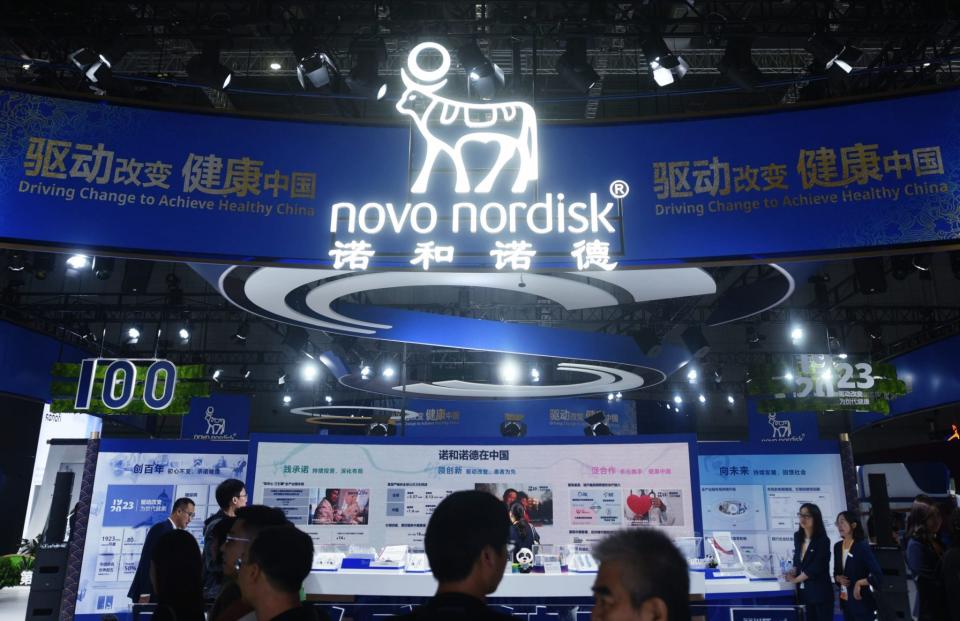Novo Nordisk’s Wegovy may just have two years to take over China’s market for weight loss drugs

China is now one step closer to joining the boom in weight-loss drugs.
The country's health officials approved the popular weight loss drug Wegovy, its manufacturer Novo Nordisk said on Tuesday. The Danish company can market the jab, administered weekly, to those who are overweight or obese, according to a WeChat statement. The statement did not reveal the date of the launch or details on pricing.
Novo Nordisk shares rose almost 4% on Tuesday.
The approval lets Novo Nordisk into a huge market. China, the world's second largest economy and home to about 1.4 billion people, is estimated to have the world's largest overweight and obese population. A national survey from China's National Health Commission, conducted between 2015 and 2019, put China's overweight and obesity rate among adults at 34.3% and 16.4% respectively.
Ozempic, Novo Nordisk's anti-diabetes drug, has been available in China since 2021. Ozempic sales in China reached 4.8 billion Danish kroner ($452 million) last year, twice as high as 2022. Ozempic's total global sales were 95.7 billion Danish kroner ($9 billion) in 2023.
Novo Nordisk has a short window
In its capital markets day in March, Novo Nordisk highlighted the markets of mainland China, Hong Kong and Taiwan as a growth area for the company. The company estimates that the number of people living with obesity in these markets will hit 479 million by 2045, a 161% increase from 2021. Those living with diabetes will rise to 174 million, a 24% increase, over the same period.
But Novo Nordisk doesn't have until 2045 to solidify its presence in China.
The company's patent on semaglutide, the active ingredient in Wegovy and Ozempic, will expire in China in 2026, much earlier than in Europe and Japan (2031) or the U.S. (2032).
Novo Nordisk is also currently in a legal tussle in China over the patent. In 2021, a Chinese court invalidated the company's patent following a challenge from a Chinese pharmaceutical company. Novo Nordisk has appealed the decision, with no further rulings yet made.
There are at least 15 generic versions of Ozempic and Wegovy in development by Chinese companies, Reuters reported in early June. At least 11 Chinese semaglutide drug candidates are already in the final stage of clinical trials.
Novo Nordisk also faces competition from its U.S. rival, Eli Lilly. China approved the company's anti-diabetes drug tirzepatide in May. Eli Lilly's obesity drug Zepbound is currently under review.
A surge in demand for Novo Nordisk's diabetes and weight-loss treatments have helped to make the drugmaker Europe's most valuable company, ahead of ASML Holding, the Dutch manufacturer of chipmaking equipment, and the luxury house LVMH.
This story was originally featured on Fortune.com

 Yahoo Finance
Yahoo Finance 